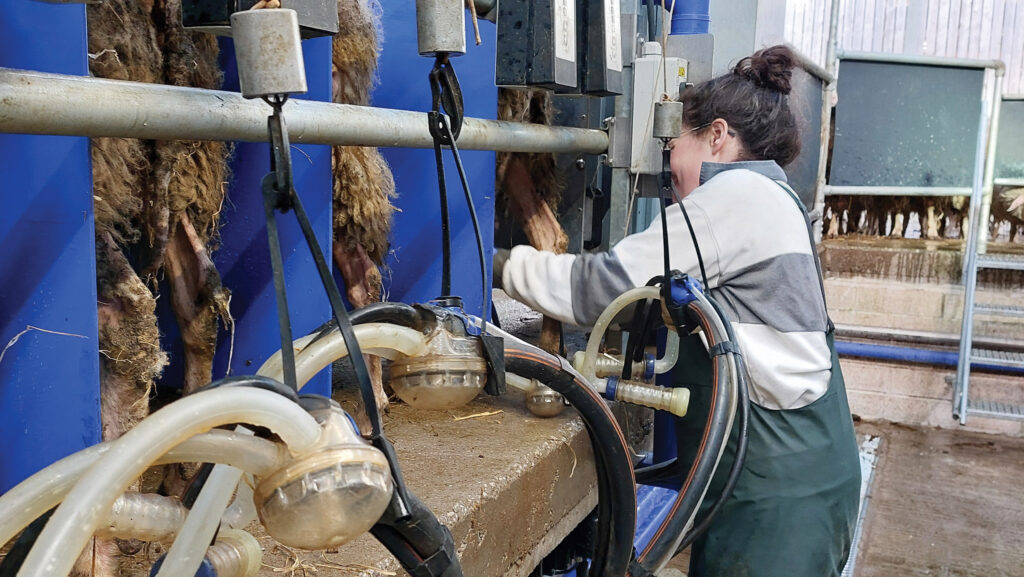Labour shortages drive decline in UK milk production
 © MAG/Shirley Macmillan
© MAG/Shirley Macmillan Recruiting staff to work on UK dairy farms is so difficult that farmers are cutting milk production and some are considering quitting the industry.
A survey of Arla Foods’ 2,000 or so milk suppliers captures the acute shortage of dairy workers, despite wages being up by an average of 27% since the end of 2019.
Eighty-six per cent of the farmers surveyed, who were at that time trying to fill vacancies, said they had received very few applicants, or no applicants at all, with the right qualifications.
See also: Can better working practices help overcome labour shortages?
Arla Foods, which points to staffing pressures in the wider supply chain too, wants the government to step in to help better promote food and farming to potential employees and to support skills development.
It says the pressure being placed on the cost of food is clear, with 8.5% of the Arla producers surveyed reducing milk output as a direct result of labour shortages, and 10.6% cutting cow numbers.
Sixteen per cent said they would consider existing milk production.
Food security
The data, released on Tuesday (24 September), shows the pressure this issue is having on UK food security, said Arla Foods managing director, Bas Padberg.
“If we want our farmers to continue to put food on the table in millions of homes around the country, they need help,” he said.
“We’re calling on the government and industry to work together to bring people into our exciting sector, and then to give them the skills and equipment they need to be fully productive.”
Ministers have pledged to support training, but Mr Padberg believes that process needs to go “further and faster”.
Recruitment
Across the dairy supply chain, the biggest challenges seem to be recruiting qualified people with the correct skill sets and attracting younger people and women.
Finding workers with experience of using automated systems is also an issue.
Arla Foods has a list of key asks for the new government:
- Reduce administration on farmers by simplifying government paperwork
- Help promote the food and farming sector
- Support skills development and qualifications
- Accelerate investments in technology to underpin automation on farm
- Change the apprenticeship levy to enable levy money to be used more easily for upskilling and training
- Reform careers advice to encourage young people to consider working in manufacturing, engineering and food.
For manufacturing companies such as Arla, it is getting increasingly hard to recruit the right people and this is holding back the efficiency gains expected from new technology and automation.
Arla has a strategy to attract a more positive gender representation in the workforce, but says it needs government support, too.
How to improve working practices
For advice and tips on how to introduce flexible working, navigate maternity and paternity leave, and offer employee benefits, see our Farmers Weekly’s Level The Field improving working practices guide.
